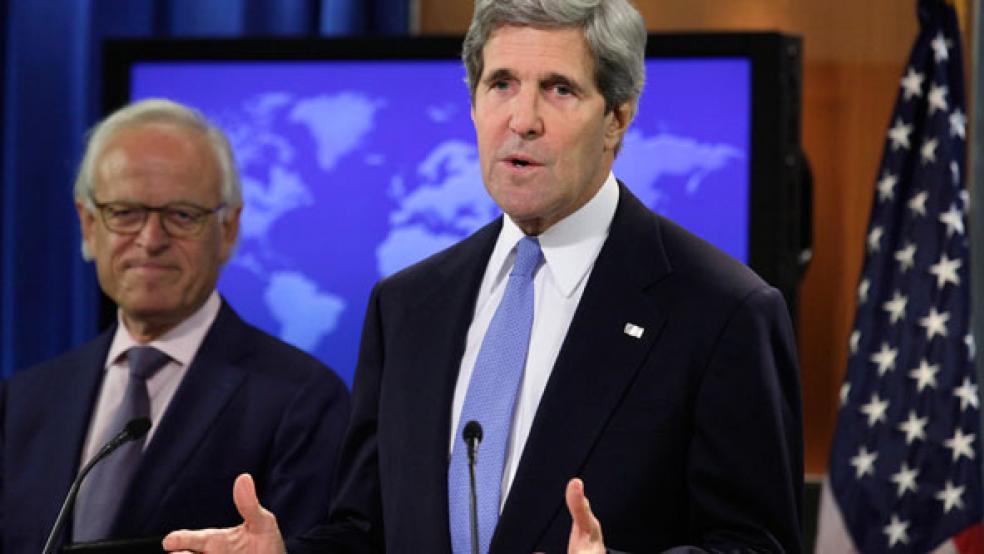The Israeli Palestinian peace talks were suspended abruptly today after the terrorist group Hamas agreed to form a unified government with Fatah. Israel pulled out of the talks, ending a nine-month negotiation initiated by the United States.
The Obama administration has faced a number of low points in foreign policy in recent years, from Benghazi, to the fallout from NSA leaker Edward Snowden, to its inability to stop Syrian President Bashar al-Assad, to its helplessness in the face of a military coup in Egypt.
Related: Obama's Last Ditch Effort for Middle East Relevance
In those instances, however, the U.S. reacted to bad situations. In this case, the U.S. had a plan to once and for all solve what many see as the core problem in the Mideast.
Syria and Egypt were largely ignored last summer as Secretary of State John Kerry surprised the world when he announced talks would resume. By taking the initiative to restart negotiations, Kerry was staking his credibility, along with the credibility of the United States, on their success. He put all of America’s chips on the table.
That’s why this setback is a body blow to Kerry and the Obama administration. If they were able to solve an issue that has been unsolvable for decades, U.S. credibility in the Middle East would have been salvaged. However, the breakdown of the talks are another indication that the United States holds little sway in the region.
The talks have been troubled from the start, but they began to unravel in February when Kerry hinted that public opinion of Israel could sink if the talks did not succeed. “No pressure will force me to give up the vital interests of the state of Israel, above all the security of the citizens of Israel,” Israeli Prime Minister Benjamin Netanyahu countered. The State Department then accused Israel of taking Kerry’s comments out of context, an ugly public spat between two long-term allies.
Then, earlier this month, the Israelis canceled a fourth prisoner release, a gesture that had been the cornerstone of the talks. This followed the Palestinians attempting to get additional recognition from the United Nations.
Related: Three U.S. Diplomatic Failures Could Make a Trend
The alliance with Hamas, a group that the United States and Israel designate as a terrorist organization, was finally enough to drive Israel from the negotiating table. There’s still a week left in the negotiating period, but Israel has steadfastly refused to talk with Hamas. The talks, for all intents and purposes, are dead.
State Department spokeswoman Jen Psaki admitted as much yesterday, telling reporters, “the timing was troubling and we were certainly disappointed” over the unification agreement.
She said, "The ball at this point is in the Palestinians' court,” and added, “Obviously, this is a very fluid situation.”
Right now, it also appears to be doomed.
Top Reads from The Fiscal Times:





